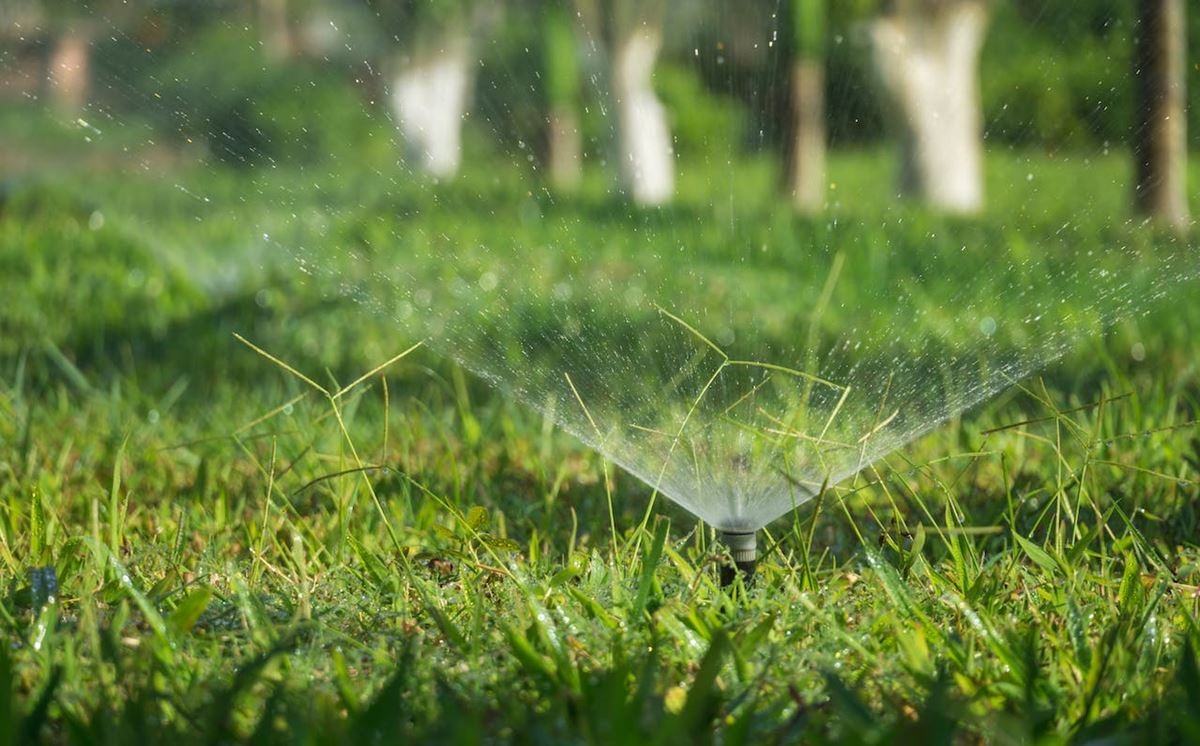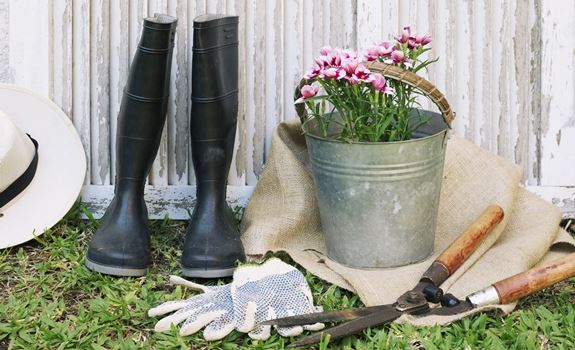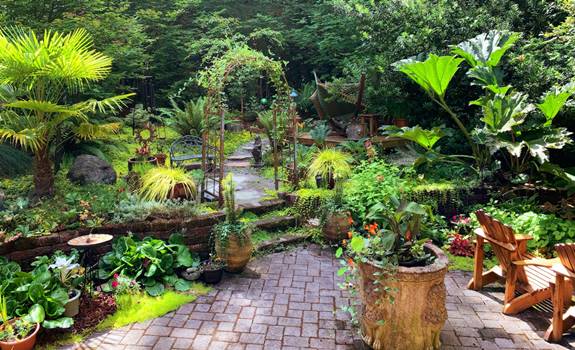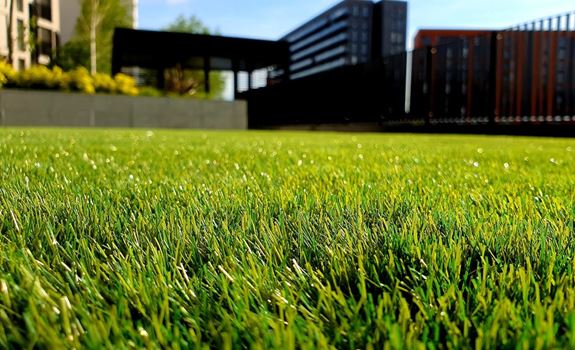Do you want to reduce your lawn maintenance while creating an eco-friendly outdoor space? Smart watering strategies are a great way to achieve both of these goals! Whether you’re looking for quick and easy methods or more complex approaches, you can use plenty of techniques to keep your yard healthy and limit the time spent on gardening chores.
In this guide, we’ll share our top tips for smart water usage so that you can have a low-maintenance lawn without sacrificing its health or appearance. Read on to learn more about how you can save water and enjoy the benefits of a beautiful garden all year round.

Eco-Friendly Lawn Watering Methods
To achieve an eco-friendly lawn, it’s crucial to consider both the frequency and the method of watering. The right watering technique can lower water usage, reduce your maintenance time, and promote a healthier, more resilient lawn. Here are some recommended methods:
Drip Irrigation
Drip irrigation is a highly efficient watering method that delivers water directly to the root zone of your plants. It minimizes water wastage and is perfect for watering individual plants or smaller lawn areas.
Soaker Hoses
Soaker hoses are beneficial for watering large areas. Water seeps out along the entire length of the hose, providing a slow, steady source of moisture to your lawn.
Rainwater Harvesting
Collecting and using rainwater is an excellent eco-friendly watering method. You can store rainwater in barrels or other containers and use it for watering your lawn during dry periods.
Smart Sprinkler Systems
These advanced systems use weather data to adjust watering schedules, ensuring your lawn gets just the right amount of water and saving you both time and resources.
Manual Watering
Manual watering with a garden hose or watering can is ideal for small lawns or targeted watering. This method allows you to control the amount of water used, preventing excess wastage.

Tips for Effective Watering
In addition to using eco-friendly watering techniques, there are some other tips you can follow to achieve a healthy and low-maintenance lawn:
- Water deeply and infrequently: This encourages deep root growth and makes your lawn more resilient to drought conditions.
- Water in the morning: Watering early in the day allows the water to soak into the soil before the sun comes out. This reduces water evaporation and helps prevent fungal diseases.
- Avoid overwatering: Overwatering can lead to shallow root growth, making your lawn more susceptible to drought and other stresses.
- Consider using drought-resistant plants: Choosing plants that are native or well-adapted to your area’s climate can help reduce watering needs.
Additional Methods for Eco-Friendly Lawn Maintenance
Beyond watering strategies, there are a variety of additional methods that you can employ to make your lawn maintenance more environmentally friendly and less time-consuming. These strategies complement the watering techniques discussed above and contribute to a more comprehensive approach toward a sustainable and aesthetically pleasing lawn.
Mulching
Mulching is an eco-friendly practice that involves spreading organic materials such as straw, leaves, or grass clippings over the soil. This not only helps to conserve soil moisture, reducing the need for frequent watering but also improves soil health, aids in weed control, and enhances the overall appearance of your lawn.
Natural Pest Control
Rather than resorting to chemical pesticides, consider natural pest control methods. Introducing beneficial insects or using organic, plant-based insecticides can help maintain a pest-free lawn without causing harm to the environment.
Composting
Composting is a sustainable method of enriching your lawn’s soil. By converting your kitchen scraps and yard waste into nutrient-rich compost, you can promote healthier grass growth and reduce the need for chemical fertilizers.
Native Planting
Planting native species can significantly reduce your lawn’s maintenance needs. Native plants are well-adapted to local weather conditions, require less watering, and are more resistant to pests and diseases.
Organic Fertilizers
Choose organic over chemical fertilizers. These natural products feed the soil and your plants, improving the overall health and vitality of your lawn while reducing the environmental impact associated with synthetic fertilizers.
Mowing Techniques
Finally, consider adjusting your mowing techniques for a more eco-friendly lawn. Raise the blades of your lawnmower to cut grass at a higher height, as this promotes deeper root growth and helps to shade out weeds. Additionally, sharpen your mower blades regularly to ensure clean cuts that minimize damage to the grass.
Professional Lawn Maintenance
If you don’t have the time or resources to maintain a lawn yourself, consider hiring a professional lawn maintenance service. Many companies now offer eco-friendly options that utilize sustainable practices and organic products for maintaining your lawn’s health and appearance. Contact an expert to see more options for eco-friendly lawn care.
Weed Control
Rather than using chemical herbicides, consider manually removing weeds or using natural weed control methods such as vinegar or boiling water. This helps to minimize harm to the environment and promotes a healthier, more sustainable lawn.
FAQ
Let’s take a deeper look at some frequently asked questions on eco-friendly lawn maintenance and watering strategies.
Q: How often should I water my lawn for optimal growth?
The frequency at which you should water your lawn can depend on various factors such as the type of grass, soil conditions, and local weather patterns. However, a general rule of thumb is to water deeply and infrequently. This practice encourages the growth of deep roots, making your lawn more resilient to drought conditions.
Q: What time of day is best for watering my lawn?
The ideal time for watering your lawn is early in the morning. Doing so allows the water to soak into the soil before the sun comes up, reducing water evaporation. What’s more, early watering helps to prevent the onset of fungal diseases which thrive in moist, warm conditions.
Q: How can I tell if I’m overwatering my lawn?
Overwatering can lead to a variety of issues, including shallow root growth and increased susceptibility to drought and other stresses. Signs of overwatering might include water runoff, a spongy feeling underfoot, the growth of fungi or mold, and yellowing or wilting grass.
Q: Can I reduce watering by choosing certain plants?
Absolutely. Choosing plants that are native or well-adapted to your area’s climate can significantly reduce watering needs. These species are accustomed to local weather conditions and require less water than non-native plants.
Q: Are there alternatives to chemical fertilizers for lawn maintenance?
Yes, an excellent alternative to chemical fertilizers is organic fertilizers. These natural products feed your soil and plants and promote your lawn’s overall health and vitality. They are environmentally friendly and reduce the negative impacts associated with synthetic fertilizers.
Final Thoughts
By implementing these eco-friendly strategies for lawn maintenance, you can create a beautiful and sustainable outdoor space while conserving water and minimizing environmental harm. Remember always to consider your local climate and conditions when choosing plants and watering techniques and exploring natural alternatives to chemical products. With a little effort and thoughtfulness, you can have a low-maintenance, eco-friendly lawn that you can enjoy for years to come.










